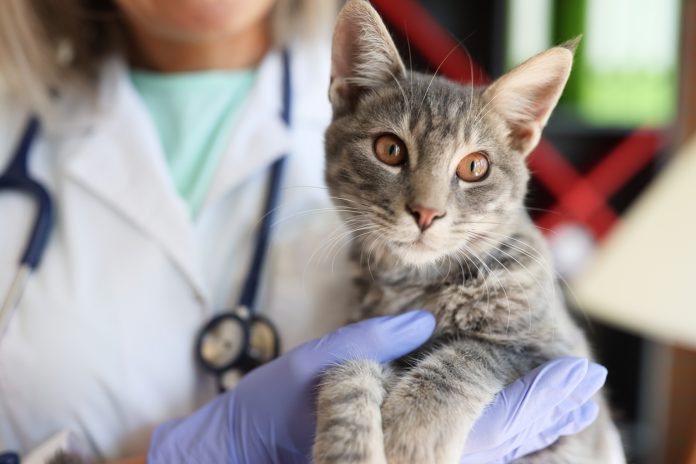Vet Dane Walker of DNA Vetcare provides an overview of Feline Infectious Peritonitis (FIP) and how owners can support their pet
Feline Infectious Peritonitis (FIP) was once considered a fatal diagnosis, a heartbreaking disease that left cat owners with few options. However, thanks to advances in veterinary medicine, there is now real hope for cats diagnosed with this devastating illness.
At DNA Vetcare, we have successfully treated many cats with FIP, and while it remains a serious disease, we want to provide cat owners with clear, up-to-date information on what FIP is, how it affects cats, and the treatment options available.
What Is FIP?
FIP is caused by a coronavirus – from the same family of viruses as COVID-19. Like COVID-19, it is species-specific, meaning it only affects cats and cannot be transmitted to humans or other animals.
Feline coronavirus itself is actually very common, especially in multi-cat households, and most cats that contract it experience mild symptoms or none at all. However, in a small number of cases (approximately 10%), the virus mutates inside the cat’s body, binding to the white blood cells instead of the gastrointestinal tract cells. This triggers an abnormal immune response that leads to FIP in some cases.
Types of FIP and symptoms
FIP can present in different ways, depending on how the cat’s immune system reacts to the virus.
There are two main forms:
Wet (effusive) FIP – This form leads to fluid accumulation in the abdomen or chest, causing bloating and breathing difficulties. Cats with wet FIP are often lethargic, lose weight, and may develop a fever that doesn’t respond to antibiotics.
Dry (non-effusive) FIP – This form is more subtle and can affect multiple organs, including the brain and eyes. Symptoms can include weight loss, persistent fever, neurological signs (such as wobbliness or seizures), and eye changes.
Both forms can cause a range of other signs, including:
- Diarrhoea
- Weight loss
- Vomiting
- Loss of appetite
- Lethargy
Is FIP contagious?
FIP itself is not highly contagious, but the underlying feline coronavirus is. This means that in households with multiple cats, the virus can spread easily, though most cats will not go on to develop FIP. The risk is higher in catteries, shelters, and multi-cat homes.
Diagnosis: Why FIP can be tricky to detect
FIP can be difficult to diagnose because there is no single test that confirms it. Instead, vets rely on a combination of:
- Blood tests (looking for changes in white blood cell counts, protein levels, and inflammatory markers)
- Ultrasound or X-rays (to detect fluid in the chest or abdomen)
- PCR testing (to detect the virus in affected tissues)
- Sometimes, biopsy samples are needed to confirm the diagnosis.
A new era: Treatment for FIP
Until recently, FIP was considered untreatable, but exciting new antiviral treatments – similar to remdesivir (used to treat COVID-19) – are now available. These medications work by stopping the virus from replicating, giving the cat’s immune system a chance to recover.
At DNA Vetcare, we have successfully treated many cats with FIP using these new therapies. However, it’s important to note that:
Not every cat can be cured – FIP patients are often very unwell by the time they start treatment.
The medication is expensive, and treatment lasts for several weeks.
Access to the drugs has been inconsistent in the past, but availability is improving.
Can FIP be prevented?
There is a vaccine for FIP, but it is not available in the UK and is not widely used elsewhere.
The best way to reduce the risk of FIP is to:
- Minimise stress in multi-cat households.
- Keep litter trays clean and avoid overcrowding.
- Ensure good general healthcare, including regular vet check-ups.
The outlook for cats with FIP has changed dramatically in recent years. What was once a fatal disease now has a real chance of being treated successfully. If you’re worried your cat may have FIP, early diagnosis and veterinary care are key.
Your pet’s health is our priority, and we’re committed to keeping you informed with the latest advances in veterinary care. If you have any questions or concerns about FIP, please don’t hesitate to get in touch.











